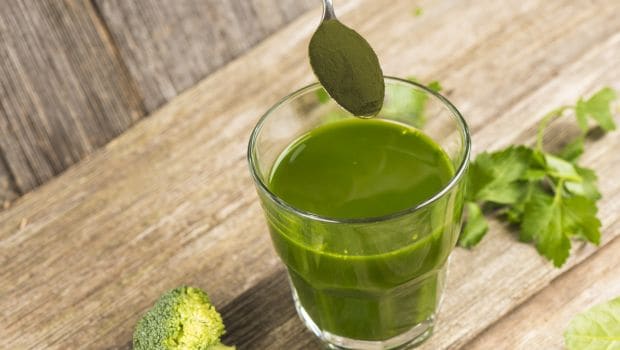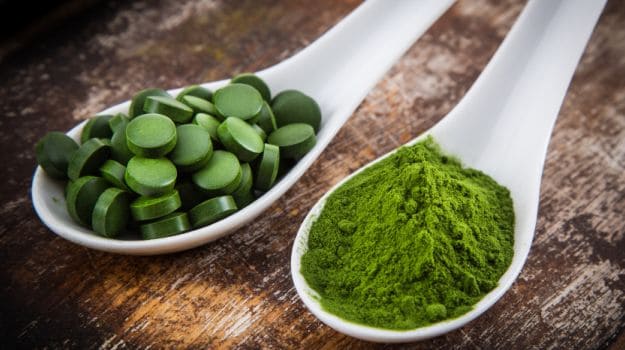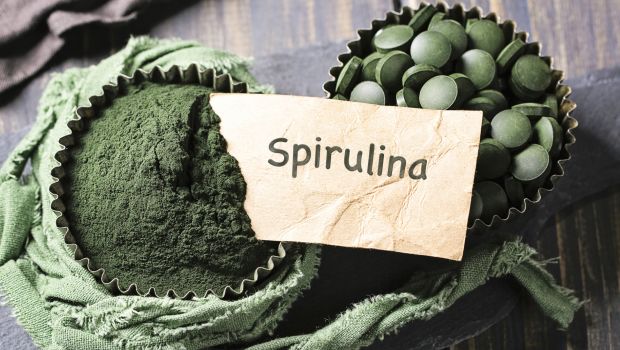Being the oldest life form on earth, it is interesting to note that spirulina was used by the Aztec people in Mexico in the 16th century. Later it was cultivated in Chad, which is surrounded by Libya, Sudan and Nigeria. However, it did not become a major part of the diet of the people till the 1960s. By the 1970s it had attained worldwide production and was on its way to becoming the most nutritious food source. Just like a lot of people detest consuming aloe vera due to its bitter taste, it is the same case with spirulina. It tastes slightly bitter thus is usually mixed with fruit juice or yoghurt to improve the taste.
Spirulina is a form of cyanobacteria, which grows in fresh, warm lakes. In India, it is widely cultivated in Auroville, Tamil Nadu. The hot climate in the southern parts of India helps aid spirulina growth using eco-friendly methods with minimal usage of pesticides and other harmful farming chemicals.
Benefits of Spirulina
Spirulina is considered to be an "all in one" source of nutrients. In fact, it even has the potential to overpower meat and eggs as protein sources in the years to come. Dr. Anju Sood, a renowned nutritionist, suggests a list of benefits of spirulina -
1. Excellent Source of Proteins
Due to its high source of protein content, spirulina is frequently referred to as the "lean, green, protein machine". In order to keep our health and well-being intact, a certain amount of protein is required by the human body. While non-vegetarians gain this protein through meat and eggs, spirulina is an excellent alternative for vegetarians. It consists of 60 percent proteins, most of which are plant based. Proteins are essential to enhance the functioning of the heart as well as improve our hair health.

2. Helps Build Immunity
The immune system is made of T cells, B cells and natural immune cells. Spirulina consists of certain elements that improve the functioning of these cells and hence builds the immune system.
3. Improves digestion
Spirulina contains amino acids that provide digestive enzymes, which facilitates healthy digestion. It also helps fight intestinal infections as it has immune cells, which fight off virus and thus promote digestion.

4. A Great Source of Antioxidants
Carotenoid is the world's most powerful antioxidant, and spirulina is a rich source of this. An increase in free radicals in the body tends to aid wrinkling, bad skin and could also lead to cancer and heart diseases. Antioxidants work wonders to fight against free radicals.
5. Good for Growing Children
Spirulina facilitates healthy growth of children due to its numerous nutrients. It improves eye sight, helps build concentration, builds muscular growth as well as enhances tissue development.

6. Improves Energy Levels
Dr. Anju Sood sasy, "1 gram of protein gives the individual 4 Kilo calories of energy and since spirulina is loaded with proteins, it works as a great energy booster".
7. Anti-Inflammatory Properties
Spirulina contains phycocyanin, which helps fight free radicals. This substance gives spirulina its great anti-inflammatory properties.

To sum it up, spirulina is a boon for the body, regardless of the age of the individual. It is known to be one of the most powerful natural sources both to the environment as well as human beings to maintain a healthy balance. The best way to make the most of these nutrient-rich algae is to consume it raw. However, today it is also available in powdered form as a vitamin supplement.
Please note: Spirulina as a vitamin supplement must only be consumed after consultation with a doctor or a specialist.Disclaimer:
The opinions expressed within this article are the personal opinions of the author. NDTV is not responsible for the accuracy, completeness, suitability, or validity of any information on this article. All information is provided on an as-is basis. The information, facts or opinions appearing in the article do not reflect the views of NDTV and NDTV does not assume any responsibility or liability for the same.









